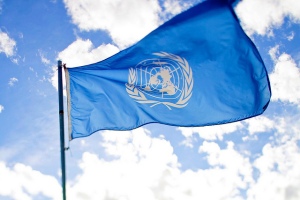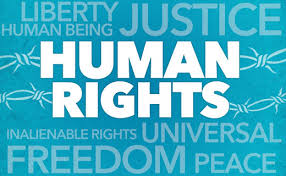 The session was organized by the co-facilitators to get comments from member states and permanent observers of the United Nations, on the Ministerial Declaration for the 2016 High-level Political Forum (HLPF) on Sustainable Development. Ambassador Gustavo, in his opening remarks, stated that this is the first to follow-up and implement the 2030Sustainable Development Agenda.
The session was organized by the co-facilitators to get comments from member states and permanent observers of the United Nations, on the Ministerial Declaration for the 2016 High-level Political Forum (HLPF) on Sustainable Development. Ambassador Gustavo, in his opening remarks, stated that this is the first to follow-up and implement the 2030Sustainable Development Agenda.
Ambassador Gustavo explained that the Ministerial Declaration, which was sent in a letter from the Co-facilitators to all permanent representatives and permanent observers on 13 June 2016 contain potential elements of the draft Ministerial Declaration.
Ambassador Gustavo further highlighted the importance of the “Global Sustainability Development Report” which was included in the Ministerial Declaration, stating that the scope of the report is one important component of the follow-up and review process for the 20130 Agenda on Sustainable Development and will inform the HLPF to make policy decisions to reduce poverty.
After the brief introductory statement, Ambassador Gustavo opened the floor to all permanent representatives and member states to comment on the HLPF Ministerial Declaration.
After comments from member states, Ambassador Gustavo opened the floor for other organizations or permanent observers to the United Nations to comment on the HLPF Ministerial Declaration.
The major call from the different organizations was the need for global partnerships at all levels to achieve the global sustainable development agenda.
Ambassador Gustavo ended the session by thanking all for the interventions and participation despite the short notice to prepare for this session. He handed over the floor to his Co-facilitator, Ambassador Gillian to give her final comments.
In her final words, Ambassador Gillian thanked everyone for their constructive work and that she looks forward to working with all on the HLPF.
Meeting: Informal consultations on the draft ministerial declaration of the high-level political forum on sustainable development for 2016, convened under the auspices of the Council, and the high-level segment of the 2016 session of the Council, convened by the co-facilitators (Australia and Peru).
Date/Time/Location: 16 June 2016/15:40 to 18:00/ Economic and Social Council Chamber
Speakers: Co-facilitators from Peru (Ambassador Gustavo) and Australia (Ambassador Gillian Bird), delegates member states, stakeholders and NGO representatives.
Reported by: Fred Yonghabi


 The meeting began by Ms. Yang’s introduction of the Report of the Secretary-General on the Implementation of the objectives of the International Year of the Family and its follow-up processes. She explained the strong correlation between family policies and sustainable development, with an emphasis on the way in which poverty reduction can be facilitated as a result of formulating sustainable family policies.
The meeting began by Ms. Yang’s introduction of the Report of the Secretary-General on the Implementation of the objectives of the International Year of the Family and its follow-up processes. She explained the strong correlation between family policies and sustainable development, with an emphasis on the way in which poverty reduction can be facilitated as a result of formulating sustainable family policies.




